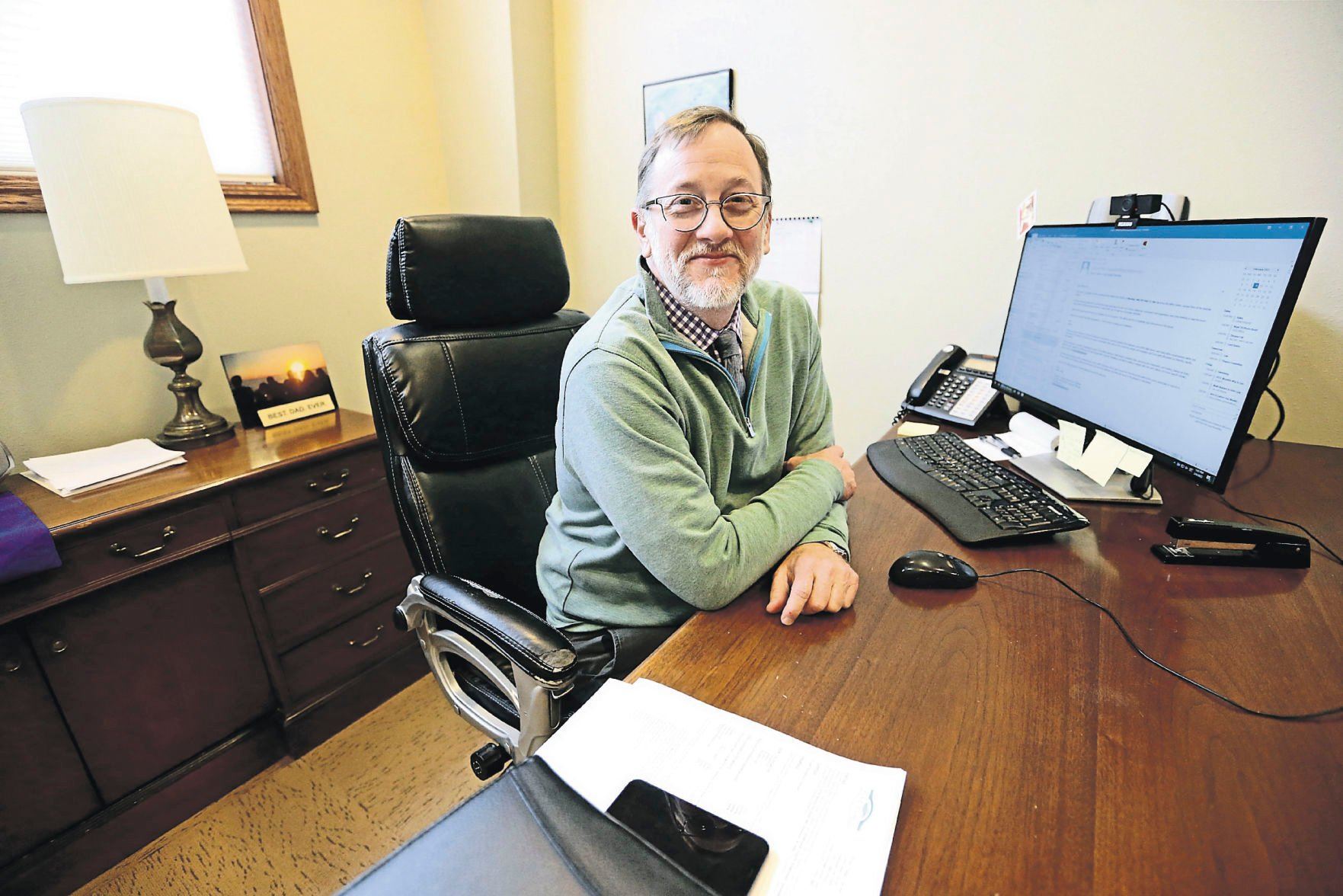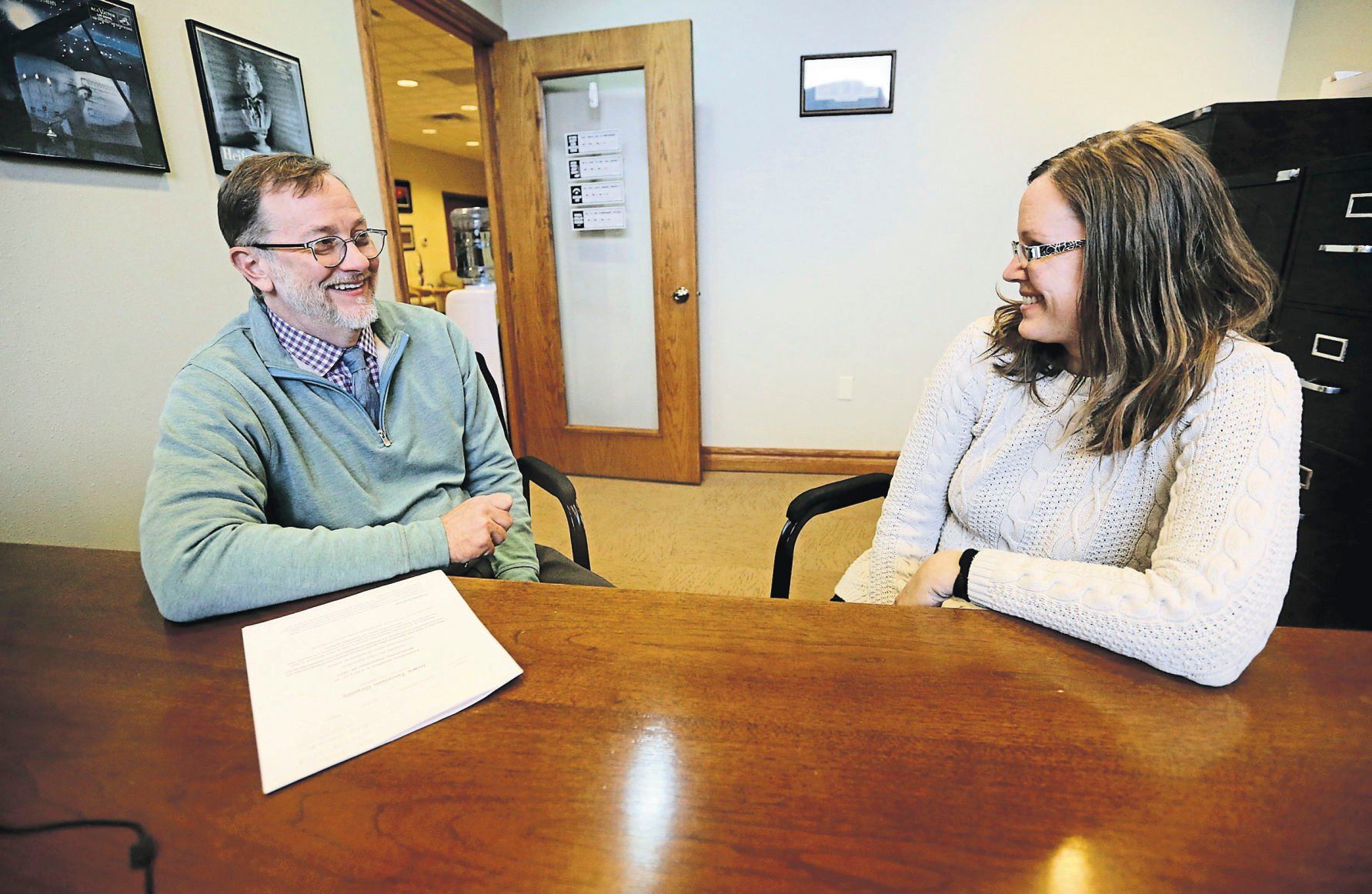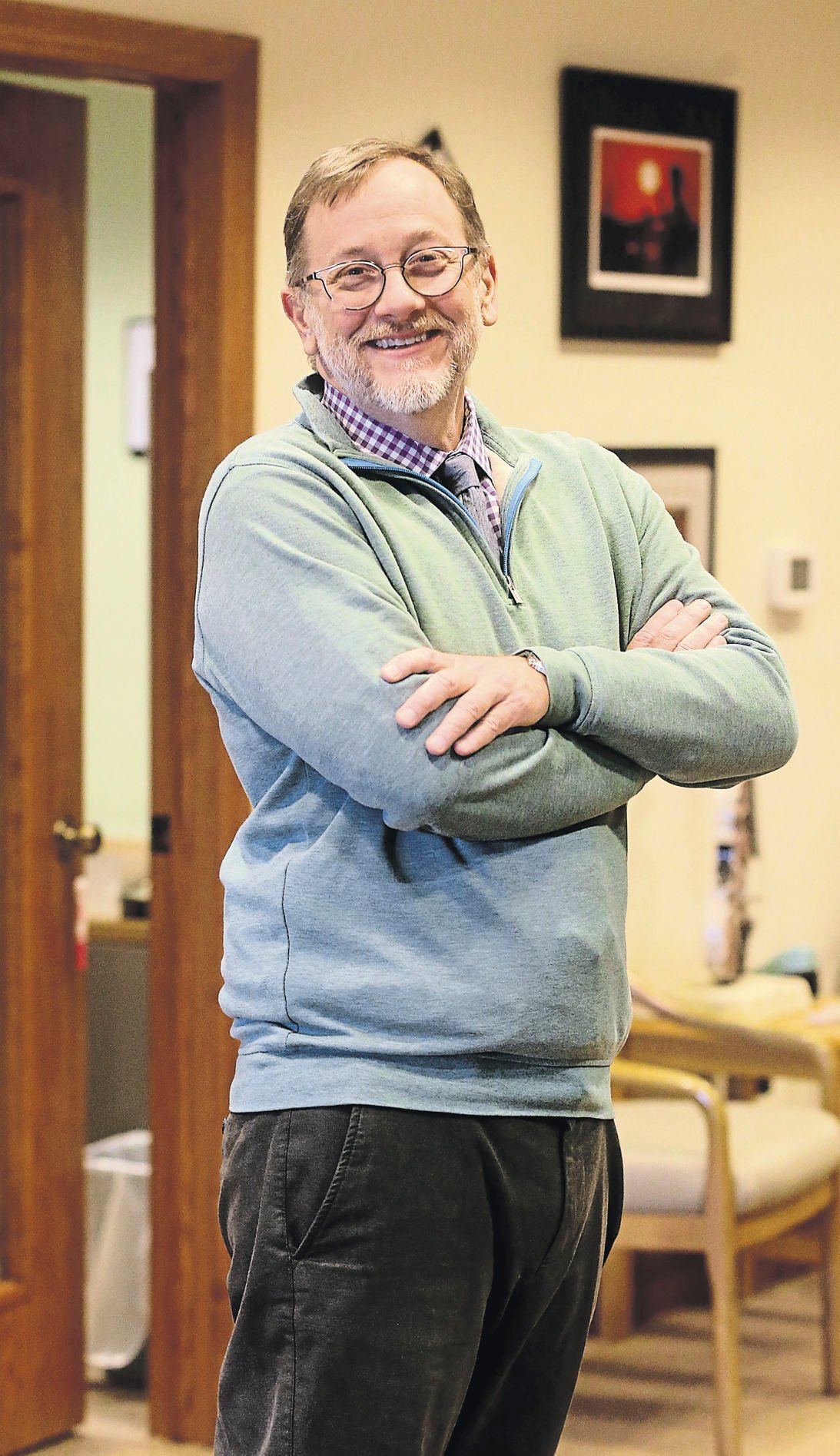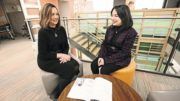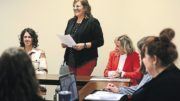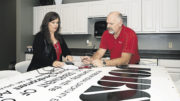Mark Wahlert, Executive Director, Dubuque Symphony Orchestra
Mark Wahlert, a native of Dubuque, has a 30-year history of working for cultural nonprofits. He is the executive director for the Dubuque Symphony Orchestra, a position he has had for nearly eight years.
Previously, he was the director for the Dubuque Museum of Art and the director of operations for the Dubuque County Historical/National Mississippi River Museum & Aquarium. Earlier in his career, Wahlert worked for the Smithsonian Institution’s National Museum of American History in Washington, D.C., and for the Minnesota Orchestra in Minneapolis.
He has a bachelor’s degree in history, with a minor in Asian art from St. Olaf College in Northfield, Minn., and a master’s degree in museum studies with a dual focus in project management and American decorative arts from George Washington University in Washington, D.C.
Wahlert also serves or has served as a volunteer on several boards and committees including for Clarke University, Travel Dubuque, Dubuque Golf & Country Club, the Dubuque Museum of Art and the Dubuque County Fine Arts Society. He also was a founding commissioner on the City of Dubuque’s Arts & Cultural Affairs Commission, including terms as vice-chair and chair, and has served as a trustee for the Wahlert Foundation for more than 20 years. Wahlert is single and has four children: Johanna, 24; Marcus, 22; Eva, 20; and Flora, 19. His career highlights include meeting and working with the likes of BB King, YoYo Ma, Ray Charles, Tony Bennett and Midori. He also worked on the Smithsonian’s restoration of the actual Star-Spangled Banner flag and helped to build and open the original National Mississippi River Museum & Aquarium complex. His hobbies include traveling, camping, kayaking, hiking, boating and attending and supporting arts and theater events. Can you name a person who has had a tremendous impact on you as a leader?
I can’t pick just one as I’d have to say that both of my parents, Bob and Donna Wahlert, have been instrumental in showing me what leadership is. From my father, I think I inherited a strong business acumen, a common-sense approach to decision-making and a dedication to community.
From my mother, I learned compassion, humility and a deep sense of how creativity can positively impact us as individuals and as a community. That combination of influences is why I’ve made a career leading organizations like museums and orchestras.
What are the most important decisions you make as a leader of your organization? Pre-COVID, I would have answered that my most important decisions were finding the delicate balance between the competing financial and artistic demands of a performing arts organization. During COVID, however, my most important decisions are how to have public programs and keep paying our bills and achieving our mission while doing everything we can to keep our audiences, our staff and our orchestra members safe. It has been the most difficult challenge in my 30 years of managing nonprofits.
As an organization gets larger, there can be a tendency for the “institution” to dampen the “inspiration.” How do you keep this from happening? Luckily, I work for an organization where creativity and pushing the boundaries are a natural and important part of what we do. To be honest, the larger and more successful we get at the DSO, the more we’re able to raise the bar on the level of talent we have on stage, the kind of music and programs we can invest in and the creative risks that we’re able to take. That built-in push of creativity and the willingness to continually reimagine what we can do on stage is one of the most invigorating things about my job.
Which is more important to your organization — mission, core values or vision? Especially for a nonprofit, I think all three are equally important. As I see them, mission defines our purpose for existing; values reflect our core principles; and vision is where we want to go as an institution.
All three feed into each other, and all three are critically important to success. All three also have to be reviewed and re-evaluated every so often to make sure that the organization is remaining vital and valuable as you grow and adjust to the changing world.
What is one characteristic that you believe every leader should possess? Empathy. I know that might not be a typical answer, but for me, trying to see things from the perspective of your staff, your board of directors or your customers is critical to being a good leader.
If you don’t try to understand or don’t care about what is truly motivating people to work for you, to buy your product or to buy in to your vision, you’ll be missing a critical piece to good leadership and decision-making.
What advice to you have for future leaders? It’s OK not to have all the answers. Use the resources at your side — engage your staff, talk to your board, get feedback from your customers. It’s OK to ask for and to need help when faced with new or difficult situations.
The final decision might ultimately land on your desk, but lean on the advice and input of those who might have been in the trenches longer or who could provide a unique perspective on what you’re facing.
Finally, always be sure your team has individuals who are willing to ask the difficult questions or might not always agree with you. You don’t want saboteurs, but a good team needs a variety of perspectives.
What lessons can leaders take away from the current pandemic? Flexibility and patience. Especially as we are now entering a third year of COVID-impacted operations, it’s been almost impossible to predict what comes next.
Having some flexibility in your plans, discussing worst-case scenarios in advance and just expecting that things will not go as planned have become difficult but necessary pills to swallow.
As for patience, this pandemic has taught me to be patient with myself, with my work team and with the world. Despite our best attempts, there is too much that is out of our control right now, so we need to not beat ourselves up when we didn’t properly plan or predict for every twist and turn that has come our way.
What are two or three of the best things about being a leader? For me, it’s working for an organization that strives every day to make our community better -– to spark creativity and dialogue and to bring a larger world to our doorsteps. As a leader, I also appreciate the sense of comradery and partnership that exist in this town.
Collaborating on projects, building partnerships, and finding ways to support and serve multiple organizations and constituencies is an added reward to being at the helm of an organization like the DSO.


